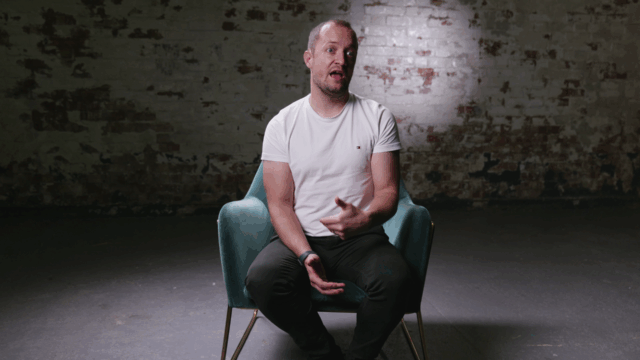They’re Already in Your Business—You Just Haven’t Noticed Yet
Every business wants strong financial leadership—but most only start looking when they need a new CFO or Finance Director.
By then, it’s too late.
- Your competitors have already spotted (and hired) the best up-and-coming finance talent.
- Your internal pipeline is empty because you weren’t developing leadership early.
- Now you’re scrambling to find external candidates when you could have built them in-house.
Great finance leaders don’t appear overnight—they’re developed.
Here’s how to spot a future finance leader before someone else hires them.
1. They’re Not Just Good at Finance—They Think Like a Business Partner
If they only care about reporting numbers, they’re a technician—not a leader.
What average finance professionals do:
- Crunch numbers but don’t challenge assumptions.
- Wait for instructions instead of proactively influencing decisions.
- See finance as a back-office function, not a commercial driver.
What future finance leaders do:
- Use numbers to tell a story and guide strategy.
- Challenge leadership teams when the data doesn’t support their plans.
- Think commercially—not just financially.
How to spot them:
- They speak the language of business, not just finance jargon.
- They don’t just report— they offer recommendations.
- They work closely with sales, operations, and leadership to drive performance.
Rule of thumb: If they’re just focused on ‘getting the numbers right,’ they’re not leadership material yet.
2. They Own Their Decisions (Instead of Just Covering Their Back)
The best finance leaders don’t just follow instructions—they take responsibility.
What holds people back?
- Deflecting decisions upwards instead of making them.
- Avoiding risk instead of managing it.
- Saying, “That’s not my job” instead of stepping up.
What future leaders do differently:
- Take accountability for their work—even the tough calls.
- Make informed recommendations instead of waiting for approval.
- Show resilience when things go wrong, instead of blaming others.
How to spot them:
- They take ownership of projects instead of just ‘doing their part.’
- They ask, ‘What’s the best way forward?’ instead of just ‘What do you want me to do?’
- They handle pressure well—because leadership is about making tough decisions.
Rule of thumb: If they take ownership now, they’ll take ownership as a leader.
3. They Can Simplify Complex Financial Information for Non-Finance People

A great finance leader isn’t just good with numbers—they can communicate them clearly.
If they lose people in a sea of spreadsheets, they’re not ready for leadership.
What weak communicators do:
- Overload leadership teams with raw data instead of insights.
- Use finance jargon that nobody outside the team understands.
- Struggle to influence decisions because they can’t make numbers relatable.
What great communicators do:
- Turn financial data into clear, actionable business insights.
- Adjust their messaging based on who they’re speaking to (CFO, CEO, sales, marketing).
- Make complex financial concepts easy to understand.
How to spot them:
- They explain numbers in a way that makes sense to non-finance teams.
- They use storytelling to highlight financial trends and risks.
- They can get buy-in from senior stakeholders—not just deliver reports.
Rule of thumb: If they can’t explain financial insights clearly, they won’t be able to lead.
4. They’re Always Looking for Ways to Improve Efficiency
Future finance leaders aren’t just focused on the status quo—they want to improve processes.
What holds some finance professionals back?
- They accept inefficient processes as “just the way things are.”
- They spend hours on manual work instead of automating where possible.
- They never challenge outdated systems or workflows.
What future leaders do:
- Identify opportunities for automation and process improvement.
- Look beyond finance to see how efficiencies can benefit the wider business.
- Bring new ideas and solutions, not just problems.
How to spot them:
- They question inefficient workflows instead of blindly following them.
- They introduce smarter ways of working.
- They drive cost-saving initiatives that actually add value.
Rule of thumb: If they’re just going through the motions, they’re not leadership material.
5. They Get People on Their Side
Finance leadership isn’t just about being technically strong—it’s about influencing people.
If they can’t build relationships across the business, they won’t succeed as a leader.
What poor leaders do:
- Treat finance as an isolated department instead of a business partner.
- Focus only on numbers without considering the people behind them.
- Fail to build trust with teams outside of finance.
What great future leaders do:
- Create strong working relationships across all departments.
- Earn the trust of leadership teams and stakeholders.
- Bring a balanced approach—firm when needed, but always collaborative.
How to spot them:
- They’re respected by people outside of finance.
- They get invited to key conversations, even if they’re not the most senior.
- They know when to challenge and when to listen.
Rule of thumb: If they’re not building relationships now, they won’t succeed as a leader later.
6. They’re Already Acting Like a Leader (Even Without the Title)
The best future leaders don’t wait to be given leadership—they take initiative.
What average employees do:
- Wait for promotion before stepping up.
- Only take responsibility when asked.
- Think leadership is about job titles, not behaviours.
What future leaders do:
- Take on extra responsibility without being told.
- Mentor and support junior team members naturally.
- Step into leadership moments before they’re officially given the role.
How to spot them:
- They don’t wait for authority—they influence without a title.
- They naturally take on leadership responsibilities.
- People already go to them for advice, even if they’re not ‘the boss’ yet.
Rule of thumb: If they’re already leading in small ways, they’ll lead in big ways too
Final Thought: The Best Future Finance Leaders Are Already in Your Business
If you wait until you need a leader, you’ve already lost the best ones.
Smart businesses are:
✅ Spotting leadership potential early—not waiting for vacancies.
✅ Developing future finance leaders through exposure and training.
✅ Giving high-potential finance professionals more responsibility.
✅ Promoting from within before competitors poach their talent.
Want to make sure you’re developing future finance leaders before your competitors do?
We Do Group finds and secures high-potential finance professionals—before they leave for bigger roles elsewhere.
We Do Benchmark ensures your salaries are competitive—so you don’t lose top talent.





